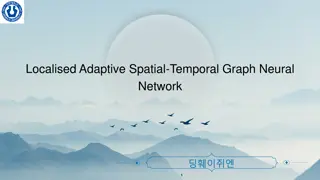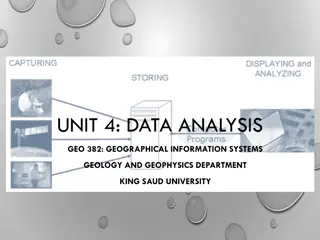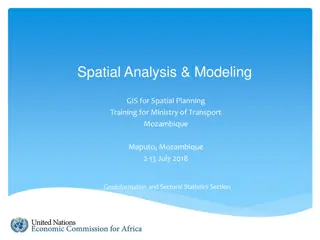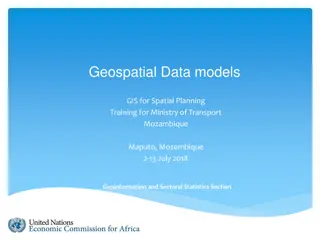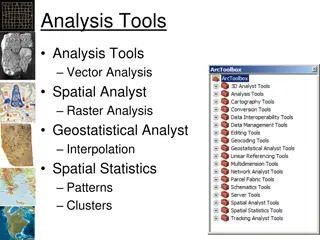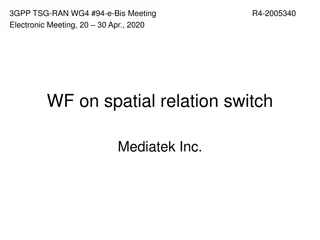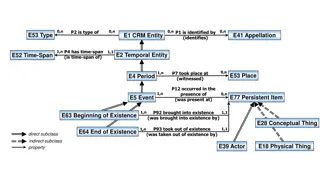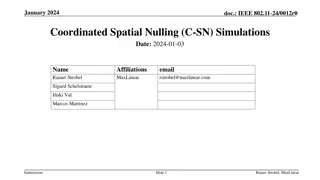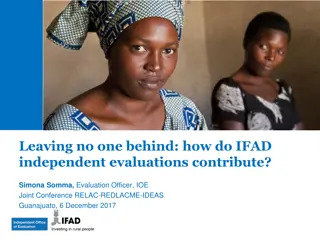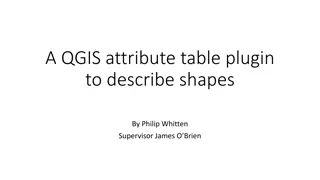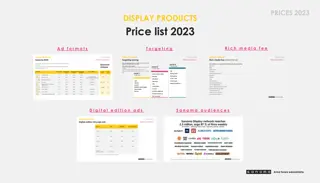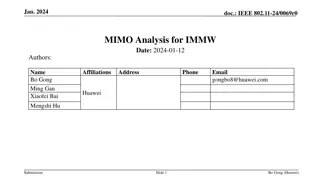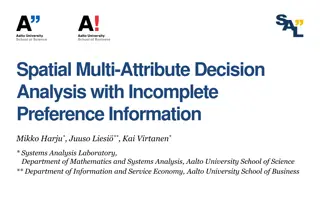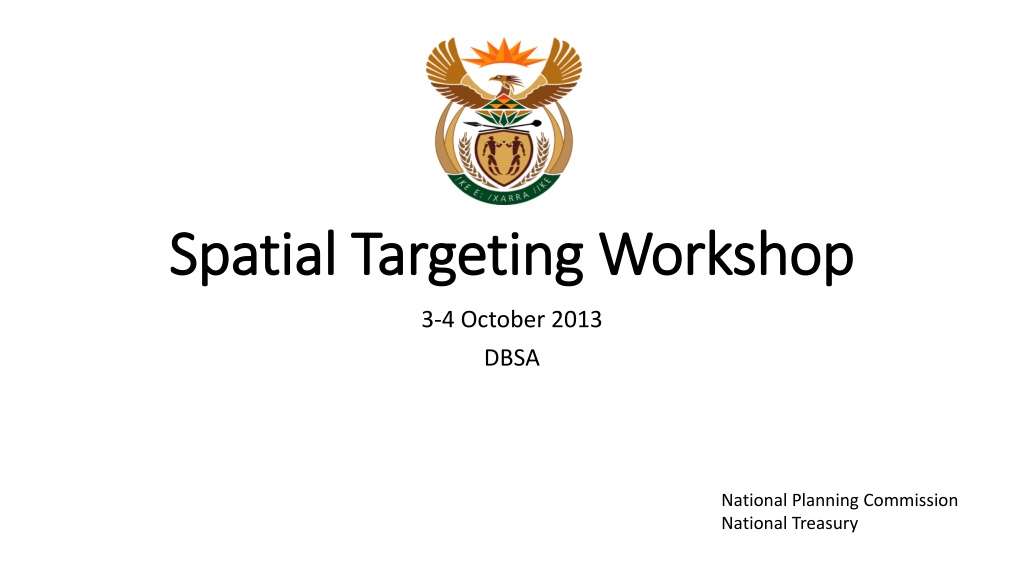
Workshop on Spatial Targeting for National Development
Explore spatial targeting strategies for national development with a focus on practical applications, policy instruments, and international perspectives. Key objectives include assessing approaches, identifying principles, and stimulating dialogue among stakeholders.
Download Presentation

Please find below an Image/Link to download the presentation.
The content on the website is provided AS IS for your information and personal use only. It may not be sold, licensed, or shared on other websites without obtaining consent from the author. Download presentation by click this link. If you encounter any issues during the download, it is possible that the publisher has removed the file from their server.
E N D
Presentation Transcript
Spatial Targeting Workshop Spatial Targeting Workshop 3-4 October 2013 DBSA National Planning Commission National Treasury
Background and purpose Background and purpose A greater policy focus on the spatial dimensions of national development: NDP identifies at least 8 forms of spatial targeting, backed by a national spatial fund Many existing initiatives that are related to these recommendations: NT convening the City Support Programme (CSP) that is pursuing the Urban Networks Strategy in metro s The dti leading work on Special Economic Zones DRDLR developing the Rural Development Strategy and others Purpose of the workshop: To identify the next steps for spatial targeting in SA Focus on practical questions of how to maximise the impact of existing policy instruments in particular places: Selecting and packaging interventions Sustaining and financing interventions Jointly organised by NPC and NT to provide a forum for further discussion Inputs from international and local experts Workshop will result in (i) a policy note for wider distribution; and (ii) additional direction for specific projects (case studies) Relies on full participation and robust discussion
Objectives Objectives To assess different approaches and options for spatial targeting in SA at regional and local scales, drawing on domestic and international experience. To identify important principles relevant to SA, and key risks to avoid. To explore the relative importance of different policy instruments direct public investment, fiscal incentives for private investment, new infrastructure, special regulations and institutional arrangements. To illustrate practical examples that may assist SA policy and practice To help national and local policy-makers and practitioners to think through the basic objectives, policy measures and institutional designs most likely to be successful. To stimulate dialogue between key departments, agencies and municipalities around their existing and proposed spatial initiatives, including those in the NDP, special economic zones, urban integration zones and neighbourhood renewal schemes.
Introductions and ground rules Introductions and ground rules Warm welcomes: Prof Qiyu Tu (Institute of Urban & Demographic Studies, China) Prof Leonardo Monasterio (IPEA, Brazil) Dr Ronnie Hall (Head of Regional Policy, European Commission) Some thanks: Xoliswa Mjoli Bertha Thobejane DBSA Ourselves and our expectations Cell phones -- Time-management -- Partnership -- Respect -- Engagement
Agenda: Day 1 Agenda: Day 1 Session 1: Setting the Agenda 9.30 The new agenda for spatial targeting in South Africa: rationale and objectives 10.00 South Africa s experience of spatial targeting: overview. 10.30 Session 2: Evaluating the Global Experience 11.00 Global perspectives on spatial targeting of lagging regions and urban areas and the relevance to SA. Dr Ronnie Hall (Head of Regional Policy, European Commission) Prof Leonardo Monasterio (IPEA, Brazil) Prof. Dr. Qiyu Tu (Institute of Urban and Demographic Studies, Shanghai, China) 13.00 Session 3: Evaluating the South African Experience 14.00 Overview of current spatial initiatives across government (15 mins each): Economic Development Programmes Urban Networks Strategy Rural Development Strategy 15.15 Parallel Sessions: The SA experience: origins, objectives, results and lessons IDZs and SEZs Urban Development Programmes Prof Phil Harrison, NPC Prof Alison Todes, Wits COFFEE LUNCH Rural Development Programmes NSDF and Corridor Initiatives 16.30 17.00 Report back from parallel sessions RECEPTION
Agenda: Day 2 Agenda: Day 2 Session 4: Key themes from Day 1 9.00 Summary of key themes from Day 1 Session 5: Public Policy Instruments What s the toolkit available? 9.45 Developing our spatial targeting instruments: from the broad principles of the NDP to the 2014 MTEF 11.00 Prof Ivan Turok Designing for future success Andrew Donaldson COFFEE Parallel Sessions 11.30 Institutional arrangements * Options, constraints, risks & opportunities * Next steps Land and Infrastructure * Options, constraints, risks & opportunities * Next steps Financial Incentives * Options, constraints, risks & opportunities * Next steps Regulatory reforms * Options, constraints, risks & opportunities * Next steps 13.00 Session 6: Applying the tools to particular situations 14.00 Parallel Sessions designed to brainstorm the key instruments, institutional designs and mechanisms for policy alignment and integration required in specific places: Regional, local, site-specific Joburg s Corridor of freedom Saldanha complex Session 7: Bringing it all together 15.30 Group Report Backs 16.15 Facilitated discussion: Review, reflections and practical messages for South Africa from all the workshops and plenary sessions. The next steps for (a) regional and (b) local spatial targeting in South Africa. 17.00 LUNCH Botshabelo Buffalo City sleeper site CLOSE





